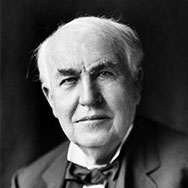It’s easy to get overwhelmed by feedback. Here’s how to filter the advice you get and make better decisions.
I knew I was in trouble.
“Definitely. Get rid of it. Focus on what you do best, and strip away the distractions.”
“Don’t. It’s a value-add feature that your customers want, and it’ll keep your ARPU high enough to actually make money.”
Two pieces of advice from two entrepreneurs far more experienced and successful than me.
Two completely contradictory viewpoints that, by definition, can’t both be right.
I have deep respect and admiration for both of them, as well as the half dozen or so other advisors I tapped for insight when we were considering killing Groove’s live chat feature, and trust their advice with confidence.
Well, that trust didn’t make things any easier.
It’s a scene that plays out over and over again for anyone that does their best to seek out and learn from mentors in business and life: advice that’s contradictory, difficult to reconcile or just plain wrong for you.
Seeking out advice from smart and successful people has been one of the most valuable things I’ve done as an entrepreneur.
But it also creates some new challenges when it comes to figuring out which advice to listen to, and which to ignore.
Here’s how I deal with it.
Why Ask for Advice in the First Place?
When we’re kids, we ask a lot of questions. And we try a lot of things.
It’s how we figure stuff—the world—out.
But the older we get, the more we know.
And the more we know about some things, the more we assume we know about everything.
The more we assume we know, the fewer questions we ask.
And that’s a very, very dangerous thing.
You only have one perspective: yours.
If you work hard, you can build better empathy and put yourself into other people’s shoes, giving you a few other perspectives.
But there’s no substitute for actually asking people with wildly different perspectives from yours for advice, whether it’s your customers or the people who have achieved what you hope to achieve someday. You’ll see angles and opportunities that didn’t exist before.
“When you have exhausted all possibilities, remember this – you haven’t.”
I didn’t even realize that deleting our Facebook page was an option. It’s one of those things that I knew you were supposed to have. So we did.
But then a friend and mentor said this…
It was an entirely new perspective that I hadn’t even considered, and it ended up being the path we chose to follow.
How to Take and Filter Advice: 5 Questions to Ask Yourself
Chris Sacca, one of the most successful startup investors of all time, told the Dropbox co-founders that they should pivot rather than take on Google.
Imagine how different things would be if the founders had listened to the advice of a brilliant, successful entrepreneur and investor.
Figuring out what advice to take and what to ignore is something that I still struggle with, and something I suspect I’ll always struggle with, but I’ve gotten much better about it.
Over time, I’ve honed in on five questions that I ask myself about every piece of advice that I’m considering. I’ve found these questions to be really valuable when it comes to deciding how to act on advice, or if I even should.
1) What’s the advisor’s perspective for this advice?
I remember in college, one of the most common questions that incoming freshmen asked older students was: “which classes should I take?”
The problem was that some students want the classes that would challenge them and that they’d learn the most from, while others wanted the classes that would be easiest and would let them get the best grades for the least amount of effort.
For obvious reasons, whichever perspective the student had make a huge impact on the advice that they gave.
The same is true today.
Not everyone you ask for advice is looking for the same outcome as you are.
Some might be giving you advice that’s best if you want your business to grow slowly and sustainably, or if you want to scale rapidly and sell the company, or attract new investors…the best course of action is often very different in all of these scenarios.
Consider not just the advice, but the perspective that motivates it.
2) How closely does their experience mirror my own?
While it’s helpful to get advice from people with experience that’s different from yours, that’s also a factor to consider when figuring out if the advice is relevant to you or not.
We tend to give advice from the perspective of “well, here’s what I would do…”
But if the advisor’s experience is vastly different – for example, if they raised venture funding and consistently had 18+ months of runway in the bank – then their advice will likely be colored by that. In that example, their advice might be to take bigger risks than what you’re comfortable with in your cash-strapped position.
When taking advice, always take the context of the person’s experience into account.
3) What are my own biases regarding this advice?
One unfortunate-but-inescapable truth of being human is that we’re a lot more likely to take advice if it validates our existing beliefs than if it contradicts them.
So when I’m evaluating a decision and considering advice from a number of different sources, I know that I tend to subconsciously give more weight to the advice that I already agreed with.
That’s not necessarily a bad thing (as I’ll discuss in more detail below), but it’s important to be aware of.
It’s hard work to try and strip your biases as you consider advice, but recognizing those biases is an important step in giving all good advice the consideration it deserves.
4) How does it compare to other advice I’ve gotten?
One of the best pieces of advice I’ve ever gotten was from a mentor who was telling me what he thought I should do about a particular hire I was considering.
He told me his opinion, and then he said: “and before you do anything, ask three more people.”
It’s the non-medical equivalent of getting a second opinion about your diagnosis, and it’s absolutely critical to ensuring that you’re getting insight into all of your possible options.
5) Can I live with this advice being wrong?
At the end of the day, every decision you make is up to one person: you.
If you follow someone’s advice and it hurts you, it’s not their fault. It’s yours. You executed on it.
That means two things:
First, always take full responsibility for any course of action you choose.
Second, sometimes it’s better to trust your gut and be wrong (and learn from it) than take someone else’s advice and be wrong (and regret not trusting your gut).
How to Ask for Advice
The questions above are also really useful for thinking about how to ask for advice.
The better your ask, the more clear the answers to the questions above will be, and the stronger your entire feedback loop becomes.
So when you ask for advice, always include:
- Your desired outcome
- The options you’re already considering (and evidence that you’ve thought hard about this decision)
- Any important relevant context
Consider this ask:
Who should my first hire be, a marketer or another developer?
Compared to this one:
Between myself and my co-founder, we’ve put together a prototype that’s almost ready to go to market, and I’m ready to make our first hire. Our goal is to start producing revenue as quickly as possible.
I’m considering either hiring a developer to accelerate production and get our product out the door faster, or a marketer to start building an email list that we can launch to. I could spend some time doing the latter myself, but I think a specialist might be able to help us do it more effectively and get more users. On the other hand, another developer would push our launch up by almost two months.
What would you do?
Which one sounds stronger to you?
Which one is more likely to get a better response?
Which one is more likely to get a response at all?
If you’re not getting great advice, you might just not be asking right.
Never Stop Seeking Out Advice
Getting feedback is one of the most important things you can do, both in business and in life.
It’s something I think everyone should always be doing.
But it’s easy to get overwhelmed by advice, and just as easy to forget to think for ourselves when smart people tell us what they would do.
I hope that this post helps you tackle that challenge.







